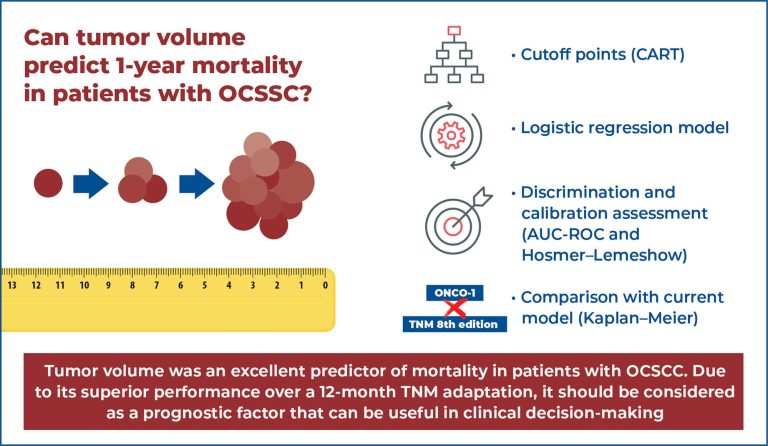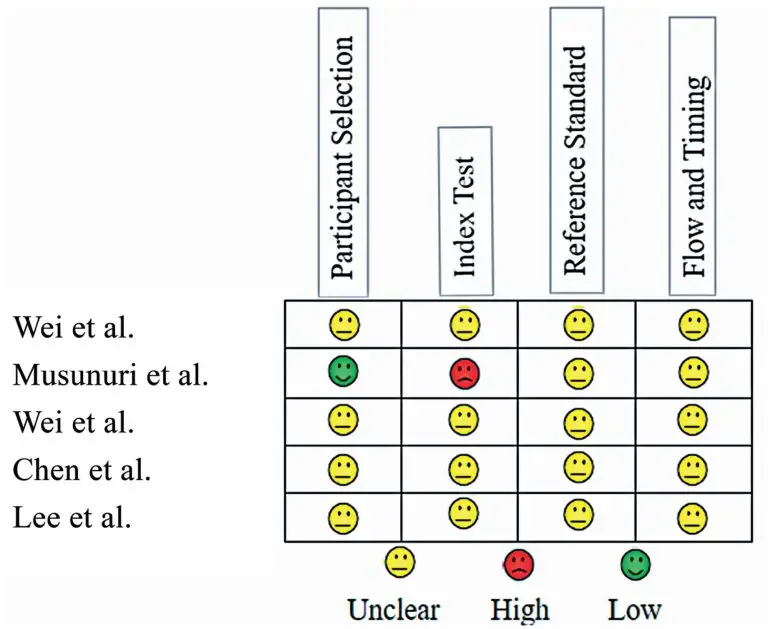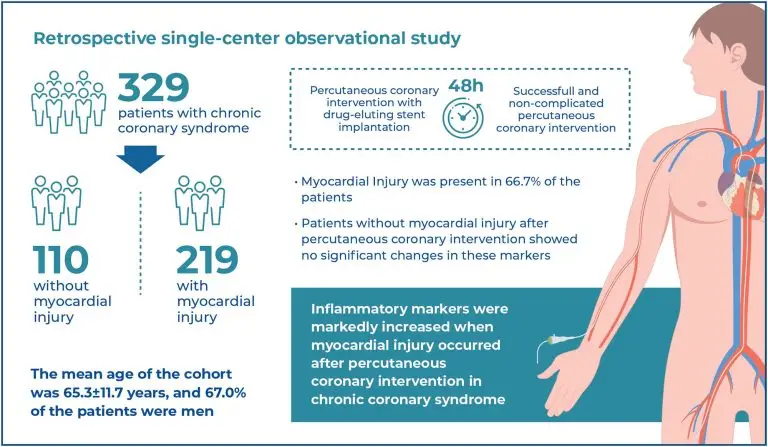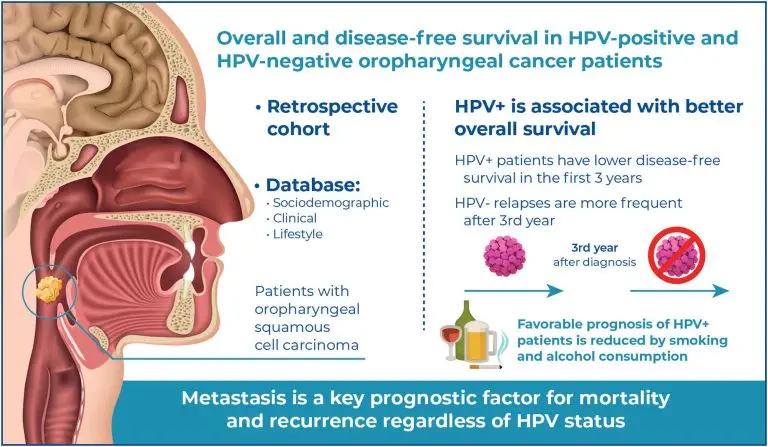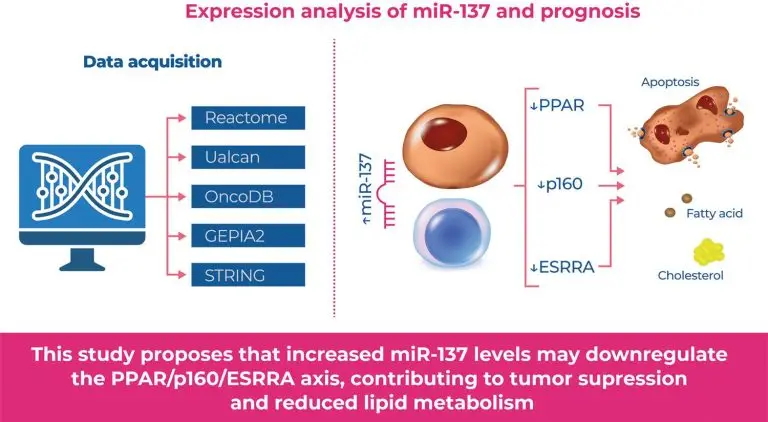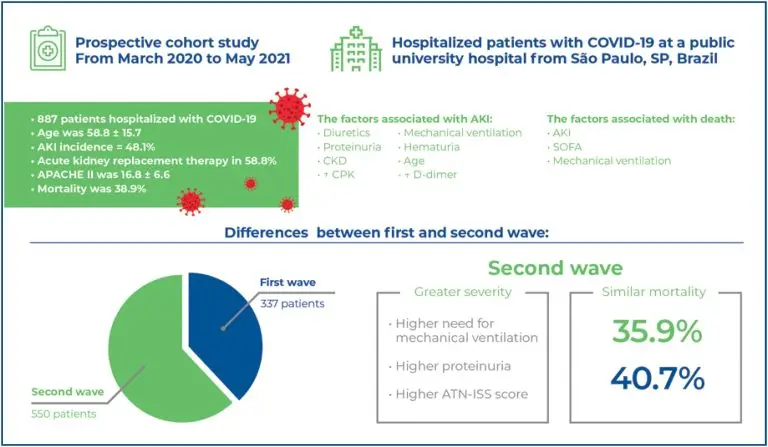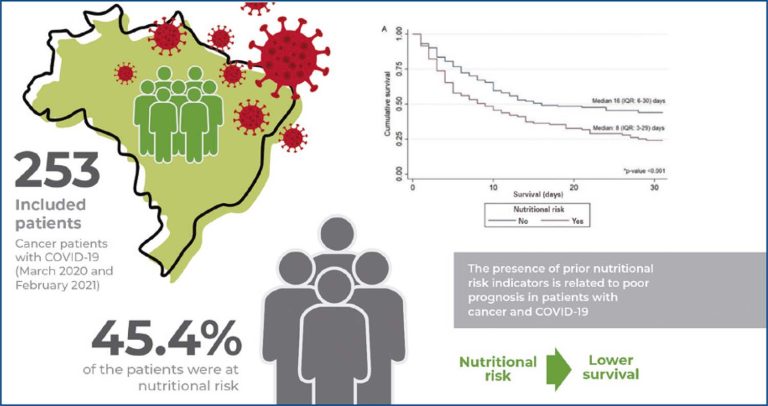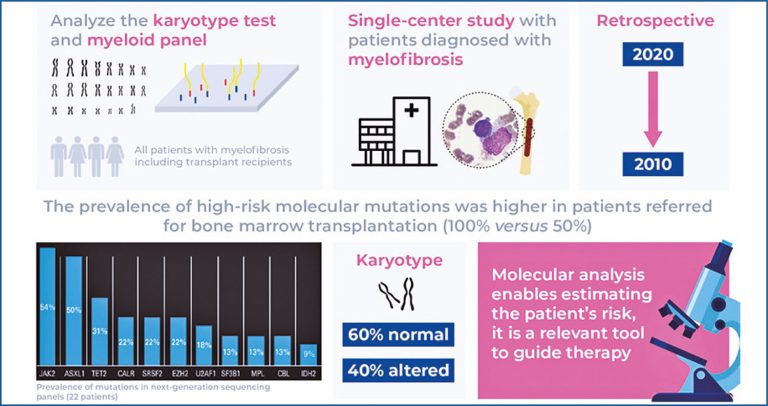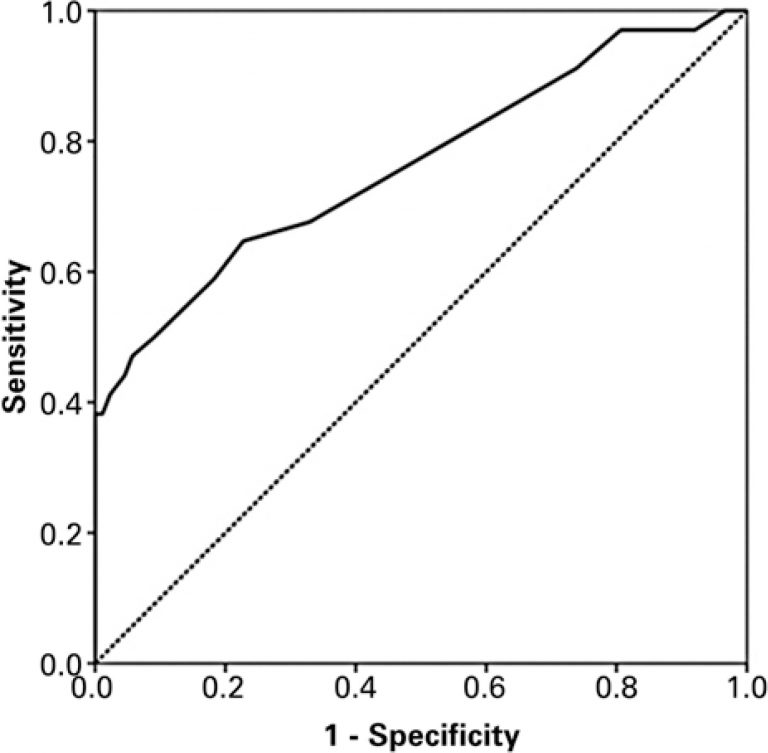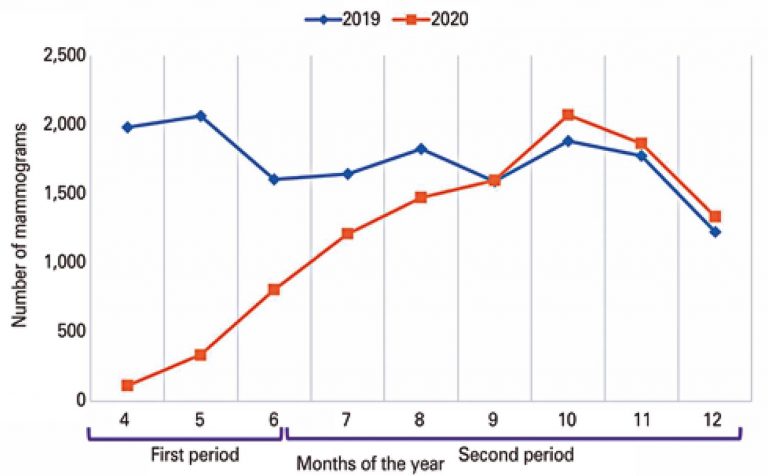10/Nov/2025
ONCO-1: Development of a univariate tool based on tumor volume to predict 1-year mortality in patients with oral cavity squamous cell carcinoma
einstein (São Paulo). 10/Nov/2025;23:eAO1878.
View Article10/Nov/2025
ONCO-1: Development of a univariate tool based on tumor volume to predict 1-year mortality in patients with oral cavity squamous cell carcinoma
DOI: 10.31744/einstein_journal/2025AO1878
Highlights ■ We developed ONCO-1, a simple tool based on tumor volume. ■ Cutoff points were defined by a CART model. ■ Tumor volume was a prognostic factor for 1-year mortality. ■ Tumor volume can to support clinical decision-making. ABSTRACT Objective: To develop a simple and accessible univariate tool based on tumor volume to predict 1-year mortality in patients with oral cavity squamous cell carcinoma. Methods: A retrospective analysis was conducted on patients with oral cavity squamous cell carcinoma included […]
Keywords: Carcinoma, squamous cell; Decision trees; Logistic models; Mortality; Mouth neoplasms; Prognosis; Tumor burden
13/Oct/2025
Neutrophil-to-lymphocyte ratio as a predictor of mortality in patients with acute kidney injury: a systematic review and meta-analysis
einstein (São Paulo). 13/Oct/2025;23:eRW1555.
View Article13/Oct/2025
Neutrophil-to-lymphocyte ratio as a predictor of mortality in patients with acute kidney injury: a systematic review and meta-analysis
DOI: 10.31744/einstein_journal/2025RW1555
ABSTRACT Introduction: Acute kidney injury is a common and serious condition in critically ill patients. Current biomarkers, such as serum creatinine, are limited in early detection and prognostic assessment. The neutrophil-to-lymphocyte ratio has emerged as a promising inflammatory biomarker, reflecting systemic inflammation and potentially serving as a tool for risk stratification in high-risk groups. Objective: To evaluate the prognostic value of the neutrophil-to-lymphocyte ratio in predicting mortality in patients with acute kidney injury through a systematic review and meta-analysis. Methods: […]
Keywords: Injury kidney acute; Neutrohils; Prognosis; Sensitivity and specificity
12/Sep/2025
Inflammatory response to elective percutaneous coronary intervention is related to myocardial injury
einstein (São Paulo). 12/Sep/2025;23:eAO1582.
View Article12/Sep/2025
Inflammatory response to elective percutaneous coronary intervention is related to myocardial injury
DOI: 10.31744/einstein_journal/2025AO1582
Highlights ■ Previous studies have correlated inflammation with complications after percutaneous coronary intervention. ■ In patients with stable coronary disease, percutaneous coronary intervention leads to elevated inflammatory biomarker levels. ■ The inflammatory response is significantly correlated with myocardial injury. ABSTRACT Introduction: In acute coronary syndrome, the release of inflammatory and myocardial injury biomarkers after percutaneous coronary intervention is associated with poor prognosis. However, little is known about the association between these biomarkers in patients with stable disease. Objective: We aimed […]
Keywords: Acute coronary syndrome; Biomarkers; Inflammation; Myocardial injury; Neutrophis; Percutaneous coronary intervention; Prognosis; Systemic inflammatory response
19/Aug/2025
Overall and disease-free survival in patients with HPV-positive and HPV-negative oropharyngeal cancer
DOI: 10.31744/einstein_journal/2025AO1525
Highlights ■ HPV+ is associated with improved overall survival in oropharyngeal cancer ■ HPV+ tumors tend to recur earlier than HPV- tumors. ■ Metastasis is a key prognostic factor for mortality and recurrence regardless of HPV status. ■ Smoking and alcohol consumption reduce the favorable prognosis of HPV+. ABSTRACT Objective: To analyze the overall and disease-free survival of patients with oropharyngeal squamous cell carcinoma. Methods: Sociodemographic and clinical data, HPV status, and alcohol/tobacco consumption were assessed among patients treated at […]
Keywords: Disease-free survival; Human papillomavirus viruses; Oropharyngeal neoplasms; Prognosis; Recurrence; Squamous cell carcinoma of head and neck; Survival rate
08/Aug/2025
Interconnected study of molecular pathways: miR-137 as a central element at the intersection of lipid metabolism and prostate carcinogenesis
einstein (São Paulo). 08/Aug/2025;23:eAO1601.
View Article08/Aug/2025
Interconnected study of molecular pathways: miR-137 as a central element at the intersection of lipid metabolism and prostate carcinogenesis
DOI: 10.31744/einstein_journal/2025AO1601
Highlights ■ The reduction of miR-137 in tumor tissues is associated with a worse prognosis. ■ miR-137 has eight oncogenically relevant target genes acting in the PPARα lipid pathway. ■ NCOA1, NCOA3, MED27, and ESRRA are associated with advanced prostate cancer. ■ miR-137 exhibits significant clinical potential by repressing the activation of pathways that influence prostate tumorigenesis in hyperstimulated metabolic environments. ABSTRACT Objective: To evaluate the roles of miR-137 and its target genes in lipid metabolism and prostate tumorigenesis. Methods: […]
Keywords: Biomarkers; Disease progression; Disease-free survival; Health strategies; Lipid metabolism; Lymph nodes; Prognosis; Prostatic neoplasms
25/Sep/2024
Acute kidney injury in coronavirus disease: a comparative study of the two waves in Brazil
DOI: 10.31744/einstein_journal/2024AO0687
ABSTRACT Highlights Renal involvement was frequent in patients with COVID-19 and related to worse outcomes. Diuretic use, mechanical ventilation, proteinuria, hematuria, age, and creatine phosphokinase and D-dimer levels were risk factors for acute kidney injury. Acute kidney injury, mechanical ventilation, elevated SOFA Score, and elevated ATN-ISS were associated with mortality. The second wave was associated with greater severity; however, the mortality rates were similar between the two periods. This may reflect the effectiveness of vaccines and the constant learning that […]
Keywords: Acute kidney injury; Brazil; Coronavirus infections; COVID-19; Incidence; Mortality; Prognosis; Receptor cross-talk
07/Mar/2023
Cancer patients with COVID-19: does prior nutritional risk associated with cancer indicate a poor prognosis for COVID-19?
einstein (São Paulo). 07/Mar/2023;31:eAO0172.
View Article07/Mar/2023
Cancer patients with COVID-19: does prior nutritional risk associated with cancer indicate a poor prognosis for COVID-19?
DOI: 10.31744/einstein_journal/2023AO0172
Highlights Patients at nutritional risk had a lower survival than those not at nutritional risk. Nutritional risk had good discriminatory accuracy to predict death. Nutritional screening should be included as an essential part of care for these patients. ABSTRACT Objective To verify whether the presence of related nutritional risk indicators prior to COVID-19 diagnosis is associated with poor survival in patients with cancer. Methods We retrospectively analyzed the data of hospitalized cancer patients who tested positive for COVID-19 between […]
Keywords: Coronavirus; Coronavirus infections; COVID-19; Malnutrition; Neoplasms; Nutritional status; Prognosis
19/Dec/2022
Molecular profile of patients with myelofibrosis: a 10-year experience
DOI: 10.31744/einstein_journal/2023AO0100
Highlights Karyotype was normal in 60% of patients and altered in 40%. The variants most often detected in the myeloid panel were: JAK2 (54%), ASXL1 (50%), TET2 (31%), and CALR (22%). The median follow-up of transplant patients was 2.4 years and the two-year overall survival was 80%. ABSTRACT Objective To analyze the karyotype test and myeloid panel with next-generation sequencing findings in patients with myelofibrosis, and to compare transplant characteristics in patients referred for bone marrow transplantation. Methods Retrospective, […]
Keywords: Bone marrow transplantation; Cytogenetic analysis; Mutation; Primary myelofibrosis; Prognosis
20/May/2022
Prognostic factors of worse outcome for hospitalized COVID-19 patients, with emphasis on chest computed tomography data: a retrospective study
einstein (São Paulo). 20/May/2022;20:eAO6953.
View Article20/May/2022
Prognostic factors of worse outcome for hospitalized COVID-19 patients, with emphasis on chest computed tomography data: a retrospective study
DOI: 10.31744/einstein_journal/2022AO6953
ABSTRACT Objective: To evaluate anthropometric and clinical data, muscle mass, subcutaneous fat, spine bone mineral density, extent of acute pulmonary disease related to COVID-19, quantification of pulmonary emphysema, coronary calcium, and hepatic steatosis using chest computed tomography of hospitalized patients with confirmed diagnosis of COVID-19 pneumonia and verify its association with disease severity. Methods: A total of 123 adults hospitalized due to COVID-19 pneumonia were enrolled in the present study, which evaluated the anthropometric, clinical and chest computed tomography data […]
Keywords: Coronavirus infections; COVID-19; Multidetector computed tomography; Obesity; Pneumonia; Prognosis; Tomography; X-ray computed
15/Dec/2021
The delay of breast cancer diagnosis during the COVID-19 pandemic in São Paulo, Brazil
DOI: 10.31744/einstein_journal/2021AO6721
ABSTRACT Objective To evaluate the impact of COVID-19 pandemic on breast cancer diagnosis in a breast imaging center. Methods This was a retrospective cohort study that included women submitted to breast exams and procedures in a private hospital in São Paulo, SP, Brazil, as from the period of most strict social isolation measures, in 2020 (separated in first period of social isolation, March 24 to June 21, 2020, and second period, June 22 to December 31, 2020), as compared to […]
Keywords: Brazil; Breast cancer screening; Breast neoplasms; Coronavirus infections; Early detection of cancer; Magnetic resonance spectroscopy; Mammography; Prognosis; Ultrasonography, mammary


